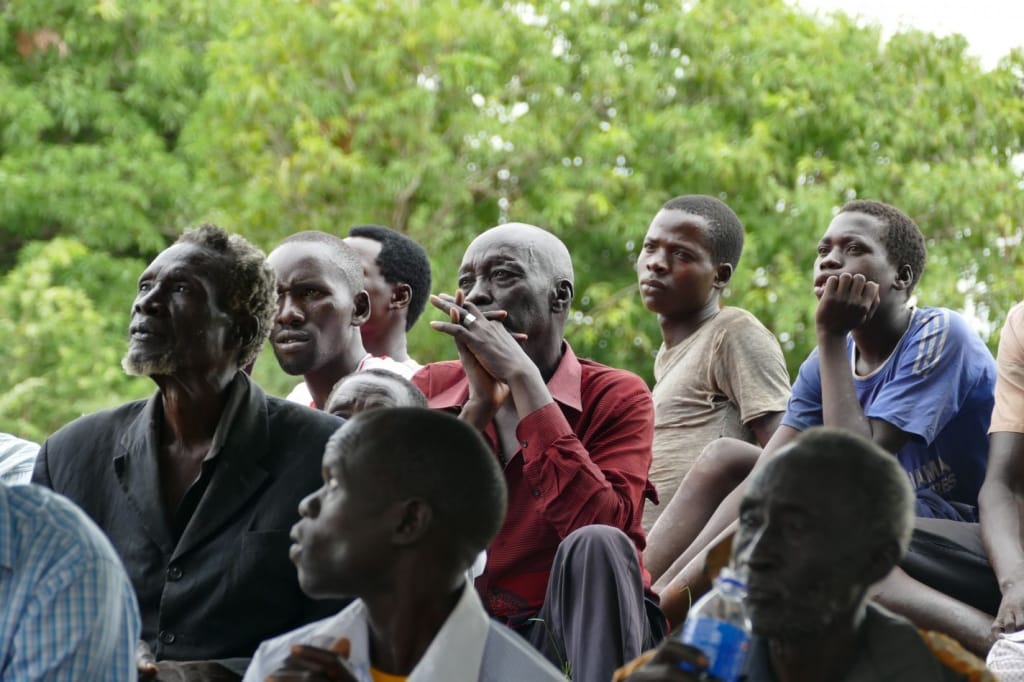Uganda land titling stands as one of the most intricately woven and often challenging systems in East Africa, a legacy of its unique historical and colonial past. Unlike many other nations with more standardized approaches, Uganda’s land tenure is characterized by a fascinating yet complex coexistence of freehold, leasehold, and the distinctive mailo land regimes. The mailo system, with its deep roots in the 1900 Buganda Agreement, grants a form of perpetual land ownership that, critically, often lacks clearly defined boundaries and can coexist with long-standing customary occupant rights. This nuanced and multi-layered framework has historically fostered a fertile ground for legal ambiguities, rampant overlapping claims, and significant transaction bottlenecks, consistently deterring both domestic and international investors and greatly complicating essential development projects across the nation. Understanding these intricacies is paramount for anyone venturing into Uganda’s property market.
A Legacy of Complexity: Historical Context & Evolving Legal Framework
To truly grasp the current state of Uganda land titling, one must delve into its historical underpinnings and the subsequent attempts at modernizing its legal framework.
Mailo Land Origins: A Dual Ownership Dilemma
The distinctive mailo land system is a direct descendant of the 1900 Buganda Agreement. Under this agreement, vast tracts of land were allocated to the Buganda monarchy and its chiefs, typically in “square-mile” plots (hence “mailo”). Crucially, while these powerful individuals received perpetual ownership, the agreement also acknowledged the pre-existing rights of tenant communities who had been residing on and cultivating these lands for generations, bestowing upon them customary occupancy rights. This created a dual ownership structure where the mailo owner holds the legal title, but tenants have security of tenure on the land they occupy. Post-independence reforms, notably the Land Act of 1998 and its amendment in 2010, made earnest attempts to harmonize these diverse tenure types and protect the rights of lawful and bona fide occupants. However, despite these legislative efforts, the underlying ambiguities surrounding boundaries, precise tenant rights, and the interaction between these two sets of interests continue to fuel disputes and present complexities in Uganda land titling.
Digital Transformation: The National Land Information System (NLIS)
In a monumental effort to modernize and streamline Uganda land titling, the National Land Information System (NLIS) was officially launched in 2020. This ambitious initiative seeks to digitize all land records, moving away from cumbersome manual processes and aiming to dramatically streamline title searches and verification. As of April 2025, NLIS has made significant progress, successfully onboarding 35 districts and issuing an impressive 150,000 Certificates of Title through its digital platform. The government has set an ambitious target for a full national rollout by 2026, contingent on substantial investments in IT infrastructure, specialized training for land officials, and public awareness campaigns. While the full benefits are yet to be realized, NLIS represents a critical leap forward, promising greater transparency, reduced fraud, and enhanced efficiency in Uganda land titling processes, ultimately de-risking property transactions for all stakeholders.
Overcoming Obstacles: Pressing Challenges in Land Administration
Despite advancements, several formidable challenges continue to plague Uganda land titling, impacting transaction efficiency and investor confidence.
Overlapping Claims & Pervasive Fraud: The Dispute Epidemic
Perhaps the most significant impediment to smooth Uganda land titling is the widespread issue of overlapping claims and pervasive fraud. The Uganda Land Commission reported over 30,000 active land disputes in 2024 alone, a staggering figure that highlights the scale of the problem. These disputes frequently lead to average transaction delays of 8 months, causing immense frustration and financial strain for buyers and sellers. Furthermore, the legal fees incurred during dispute resolution can escalate rapidly, equating to an average of 5–7% of the total land value. This environment of uncertainty and the high potential for litigation directly deter investors and inflate the costs associated with property acquisition, making robust due diligence an absolute necessity in Uganda land titling.
Institutional Constraints: Backlogs and Inconsistent Services
The effectiveness of Uganda land titling is also hampered by significant institutional constraints. The Ministry of Lands, despite its critical mandate, often operates with limited staffing and continues to rely on manual processes in many departments. This perpetuates chronic backlogs in land registration, survey approvals, and title issuance, creating frustrating delays for citizens and investors alike. Furthermore, there are stark discrepancies in service levels between urban and rural district land offices. Urban centers might have more access to NLIS and better-trained staff, while rural areas often struggle with outdated systems and insufficient resources. These inconsistencies undermine public trust and create an uneven playing field, making reliable and efficient Uganda land titling a postcode lottery in some regions.
Public Awareness Deficit: The Information Gap
A less obvious but equally impactful challenge is the pervasive public awareness deficit regarding Uganda land titling. Recent surveys conducted in key urban centers like Kampala and Wakiso reveal that only 40% of respondents truly comprehend their specific land tenure type (e.g., freehold, leasehold, mailo) or fully understand the benefits and procedures of digital registration through NLIS. This lack of fundamental knowledge directly dampens the adoption rate of the new digital system. Many landholders remain unaware of how to access NLIS services, the security benefits it offers, or the importance of updating their records. Without widespread public understanding and engagement, the full potential of NLIS to revolutionize Uganda land titling cannot be realized, leaving many vulnerable to fraud and bureaucratic delays.
Innovative Responses: Tech & Private Sector Driving Change
Despite the challenges, a wave of technological and private sector innovations is actively contributing to improving Uganda land titling and increasing transaction certainty.
Blockchain Pilots: The Future of Immutable Records
Pioneering efforts, such as Land LayBY UG’s blockchain pilot in Wakiso, are demonstrating the immense potential for transformative change in Uganda land titling. This pilot project utilizes blockchain technology to maintain immutable (unchangeable) title records for 5,000 parcels of land. The decentralized and cryptographically secured nature of blockchain drastically cuts verification times by an impressive 70%, significantly reducing reliance on traditional paper archives that are susceptible to loss, damage, or tampering. The widespread adoption of blockchain could fundamentally revolutionize how land ownership is recorded and verified in Uganda, offering an unprecedented level of security and transparency, and setting a new standard for efficient Uganda land titling.
Legal Aid Clinics: Addressing the Justice Backlog
Non-governmental organizations (NGOs) are playing a crucial role in mitigating the impact of land disputes. Organizations like the Foundation for Human Rights Initiative (FHRI) provide invaluable pro bono legal aid to individuals caught in complex title disputes. Since 2022, FHRI alone has handled over 500 cases, significantly contributing to reducing the court backlog for minor land matters. By offering expert legal assistance to vulnerable populations who might otherwise lack access to justice, these legal aid clinics not only resolve individual disputes but also highlight systemic issues, contributing to broader advocacy for more efficient and equitable Uganda land titling processes.
Mobile Outreach: Bridging the Rural-Urban Divide
In a strategic partnership with GIZ (German Agency for International Cooperation), the Ministry of Lands has deployed innovative mobile registration units. These units actively bring land registration services directly to underserved rural districts, bridging the significant rural-urban service gap. Since 2023, these mobile units have processed an impressive 25,000 Certificates of Title, reaching communities that would otherwise face significant travel and logistical challenges to access land offices. This proactive approach not only increases the number of formally registered titles but also enhances public trust in the land administration system, making formal Uganda land titling more accessible to all citizens.
Strategic Investor Implications: Navigating the Landscape Securely
For investors eyeing opportunities in Uganda’s real estate market, understanding the intricacies of Uganda land titling and adopting specific strategic approaches is not just advisable, but absolutely essential for mitigating risks and ensuring successful ventures.
Due Diligence Necessity: Allocate Time & Budget
Given the complexities inherent in Uganda land titling, investors must prioritize thorough due diligence as an absolute necessity. It is critical to allocate a substantial budget, typically 5–7% of the land value, specifically for legal fees and anticipating extended closing timelines. Engaging reputable, experienced surveyors early in the process is paramount to accurately define boundaries and identify any potential encroachments or overlaps. Concurrently, retaining highly experienced attorneys specializing in Ugandan land law is non-negotiable. Their expertise is vital for meticulously scrutinizing all title documents, verifying ownership chains, and identifying any encumbrances or potential disputes, thereby safeguarding the investment and streamlining the often-protracted process of Uganda land titling.
Opportunity in PropTech: First-Mover Advantage
The ongoing digital transformation of Uganda land titling presents a compelling opportunity for investors in property technology (PropTech). Backing initiatives focused on enhancing digital registries or developing new blockchain-based verification platforms can yield significant first-mover advantages in a currently underserved market. Investing in solutions that improve data accuracy, streamline verification processes, and enhance transparency directly addresses the pain points of current land administration. Such investments not only offer lucrative financial returns but also contribute to building a more robust and trustworthy real estate ecosystem in Uganda, ultimately benefiting all stakeholders involved in Uganda land titling.
Stakeholder Engagement: Building Bridges for Success
Proactive and thoughtful stakeholder engagement is a crucial strategy for any successful real estate venture in Uganda, especially concerning Uganda land titling. Collaborating early and transparently with district authorities is essential for understanding local zoning plans, navigating approval processes, and mitigating potential regulatory hurdles. Furthermore, engaging with community leaders during due diligence and project planning phases fosters vital goodwill and can significantly streamline approvals, particularly for projects on mailo land where customary occupants’ rights need to be respectfully addressed. Building these strong relationships helps preempt disputes and ensures that projects align with local development aspirations, creating a more harmonious environment for Uganda land titling and development.
Conclusion: Charting a Course for Certainty in Uganda’s Land Market
Despite the historically entrenched complexities that have made Uganda land titling an Achilles’ heel for its real estate sector, there is clear and tangible progress. Stakeholder-led initiatives—ranging from the ambitious rollout of digital registries like NLIS to cutting-edge blockchain pilots and the invaluable support from legal aid clinics—signal a determined movement towards greater certainty and transparency. As the National Land Information System continues its expansion and public awareness campaigns succeed in educating more citizens about their land rights and the benefits of digital registration, the expectation is that land transaction certainty will significantly improve. This progress is crucial for unlocking Uganda’s immense real estate potential, paving the way for a more secure, efficient, and attractive property market for all.




